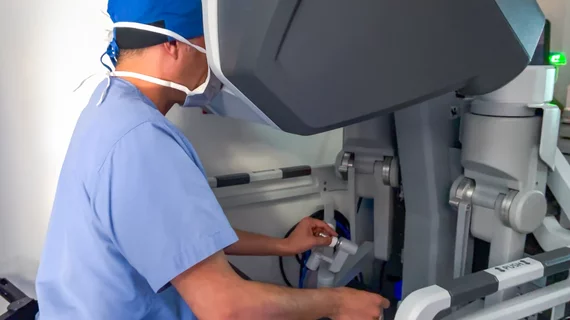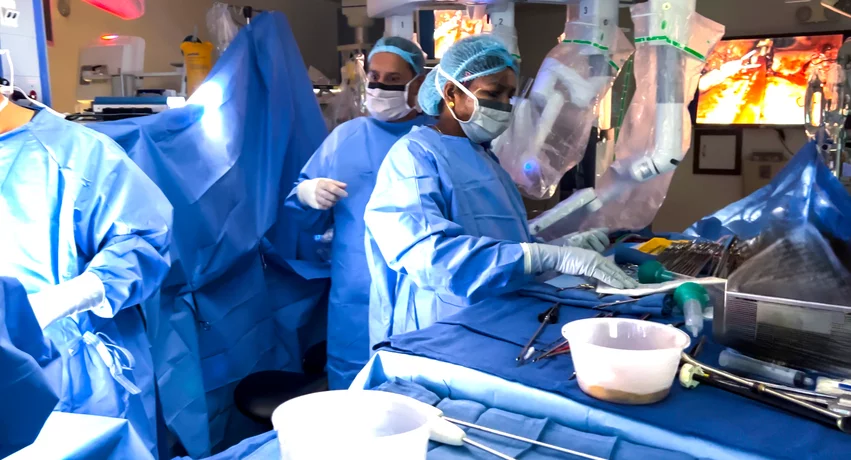Surgeons make history, perform world’s first fully robotic heart transplant
A heart team at King Faisal Specialist Hospital and Research Center (KFSHRC) in Riyadh, Saudi Arabia, made a bit of history, completing the world’s first fully robotic heart transplant.
The procedure, which lasted roughly two and half hours, was performed on a 16-year-old patient with end-stage heart failure. One reason this patient was selected was the fact that he had specifically requested the heart team not open his chest.
Cardiac surgeon Feras Khaliel, MD, PhD, led the transplant, practicing with his team seven times over the course of three days to prepare.
According to KFSHRC, one of the primary benefits of using these advanced robotic technologies for cardiac procedures is that they can significantly reduce recovery times. Robotic procedures can be less invasive, even for something as complex as a heart transplant, which allows patients to recover more quickly and get back to their day-to-day lives. Robotic heart transplants also offer the potential of reducing complication risks and improving the patient’s quality of life, the hospital added.
In a statement highlighting the group’s success, Majid Al Fayyad, CEO of KFSHRC, compared this moment to the very first heart transplants performed back in the 60s.
“This remarkable achievement would not have been possible without the unwavering support of our visionary leadership, who have prioritized the development of the healthcare sector, paving the way for a transformative leap in healthcare services, unlocking new possibilities to elevate the quality of life for patients both locally and globally,” he added.
The patient is now recovering, with no signs of significant complications.
Click here for extended video footage from the procedure that follows the entire process and includes multiple interviews.
When Newsweek published its 2024 World’s Best Hospitals rankings, KFSHRC came in at No. 1 for all of Saudi Arabia. The same was also true in the publication’s 2023 rankings.


